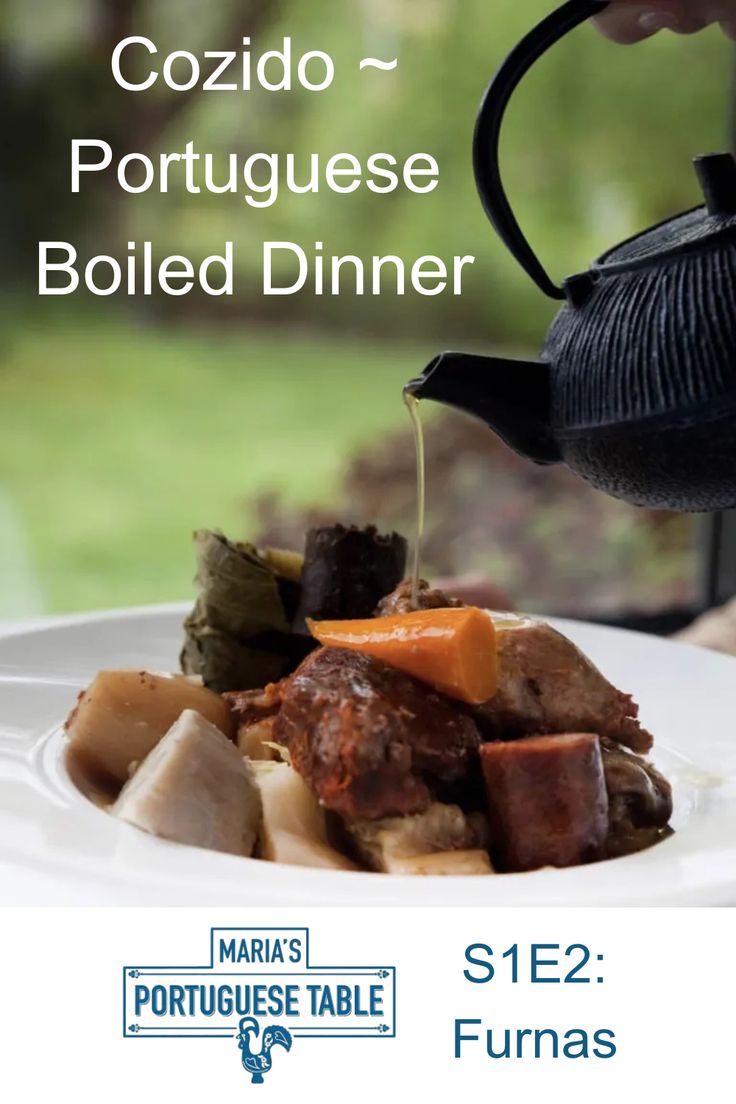The Process:
-
Preparation: The meats, sausages, and vegetables are meticulously layered into a large lidded pot.
-
The Journey: The pot is transported to the geothermal fields, where designated holes are dug into the warm, steaming ground.
-
Natural Cooking: The pot is buried and left to cook for 5-7 hours using nothing but the natural geothermal heat emanating from the earth.
-
The Reveal: The pot is unearthed, and the Cozido is served, infused with a subtle, distinct sulfurous minerality from the volcanic steam—a flavor profile impossible to replicate anywhere else.
This method is a powerful example of the Azorean spirit: harnessing the raw, untamed power of nature to create something nurturing and profoundly delicious.
The Cultural Significance: A Dish of Community
As Maria’s episode beautifully illustrates, Cozido is more than food; it is a ritual. Its preparation is a labor of love, often taking all day and involving the whole family. It is the star of Sunday lunches, religious festivals, and large celebrations. Each family has its own variation—the choice of meats, the ratio of vegetables—making each Cozido a personal signature while still being unmistakably Portuguese.
It represents conforto (comfort) and fartura (abundance). In a historically poor country, a dish overflowing with different meats was a symbol of prosperity and hospitality, reserved for special occasions to share with loved ones.
The Process:
-
Preparation: The meats, sausages, and vegetables are meticulously layered into a large lidded pot.
-
The Journey: The pot is transported to the geothermal fields, where designated holes are dug into the warm, steaming ground.
-
Natural Cooking: The pot is buried and left to cook for 5-7 hours using nothing but the natural geothermal heat emanating from the earth.
-
The Reveal: The pot is unearthed, and the Cozido is served, infused with a subtle, distinct sulfurous minerality from the volcanic steam—a flavor profile impossible to replicate anywhere else.
This method is a powerful example of the Azorean spirit: harnessing the raw, untamed power of nature to create something nurturing and profoundly delicious.
The Cultural Significance: A Dish of Community
As Maria’s episode beautifully illustrates, Cozido is more than food; it is a ritual. Its preparation is a labor of love, often taking all day and involving the whole family. It is the star of Sunday lunches, religious festivals, and large celebrations. Each family has its own variation—the choice of meats, the ratio of vegetables—making each Cozido a personal signature while still being unmistakably Portuguese.
It represents conforto (comfort) and fartura (abundance). In a historically poor country, a dish overflowing with different meats was a symbol of prosperity and hospitality, reserved for special occasions to share with loved ones.

